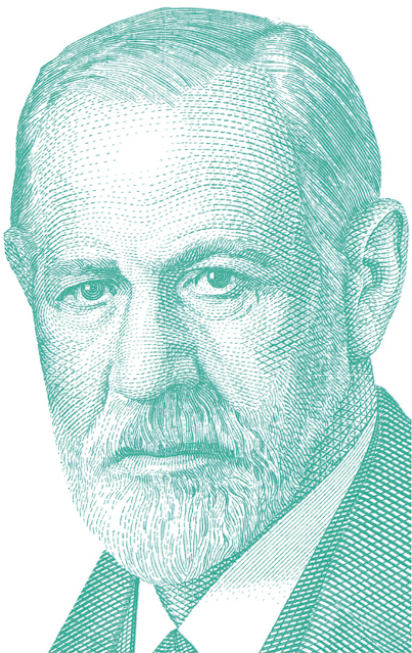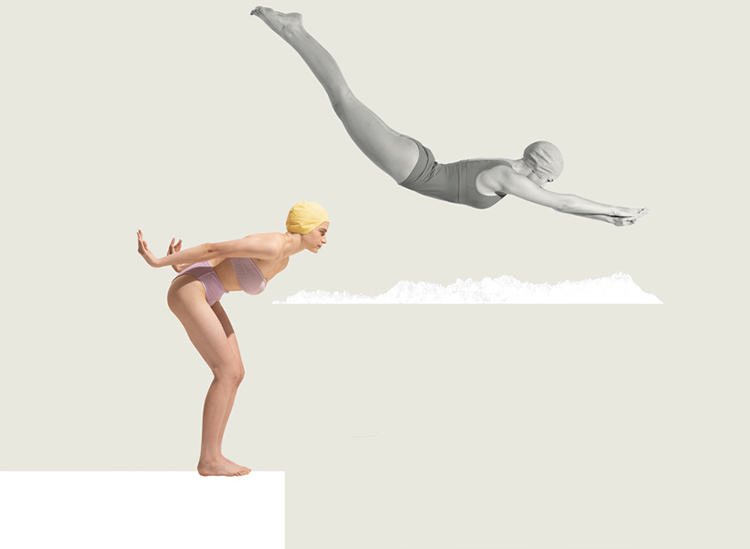Daily Contemplation
Your Dream Talks to You
📝Text by. Chang-ki Kim, psychiatrist

The borderline between reality and unreality
-
I go back to my childhood. I am in 4th or 5th grade. School is over. I put on my backpack and head back home. Somehow my heart begins to pound and I start to feel anxious. And I start running. I'm afraid Mom will likely give me an earful. Why? I haven’t finished my manuscript. What manuscript? My gosh! It was a dream! Frightened, I wake up from the dream.
Why do we have dreams? What does it have to do with our functions? Great scientists have done extensive research on the subject, but it remains a mystery. There are more neurons, or nerve cells in our brain, than stars or planets in the sky, and the ways the nerve cells are connected vary so widely that there are countless variables and combinations. In the old days, people believed that dreams were divine revelations or omens. They thought there must be reasons for what they experienced in dreams wherein reality and unreality blended. Everything happens for a reason and has consequences. And people find it hard to abandon their beliefs for what they believe is right.
Freud discovered that there exists a world of unconsciousness by analyzing people’s dreams. So, he had rich people in Austria lie in bed and talk to him about the dreams they had three or four days a week. For Freud, dreams were a window into their unconsciousness and hidden desires. Eventually, he published the lengthy book “The Interpretation of Dreams” and pioneered the new field of psychology called “psychoanalysis.” In psychotherapy, dreams became a new path leading to unconsciousness or tracking down the source of conflicts. However, further research showed that dreams did not necessarily mean something specifically related to reality. What dreams could mean is not important. -


A short film for the brain’s rest
There are multiple theories about the function and meaning of dreams. The most convincing theory is that our brain sorts out our experiences and reinforces memory while we dream, which is a resting phase for the brain. In other words, the function of dreams is more important than the meaning. We need to focus on what we experience or aspire for in dreams where the lines between reality and unreality become blurred.
No dreams mean no rest for our brain. It is the opposite of what we have known. Dreams occur while our brain rests. The human brain is starved for stimulation. The dominant circuits in our brain are ones that search for, seek, and crave for what we need in reality for a better, happier life. These brain circuits work non-stop to ensure survival and satisfaction. When we are worried, our brain works even harder. This is why we cannot fall asleep easily or we wake up frequently even after falling asleep when we have worries.
The brain plays tricks to get some rest. It makes the circuits distracted while it rests, regroups, and reinforces itself. Among the daily input, it picks out the stimuli to which the circuits are sensitive. Then, it puts them together and fits them roughly into a storyline it has created, based on various experiences of the past to create and play a short film. It is like watching TV absent-mindedly and getting some rest after a long day. With most stimuli chosen to cater to the circuits’ preferences, the storylines often feature powerful emotions we experience during struggles for survival, including fears, anxiety, and anger. We rarely experience positive emotions such as sense of security, joy, and pleasure in dreams, just like in reality. While the circuits are distracted by the false stimuli, the brain sorts out, processes, and store experiences we had on the day in short-term memory. Memories are combinations of micro proteins. The brain breaks down unnecessary memories and reuses them while storing important memories in the relevant files. This is how memories are reinforced.
The function of dreams is more important that the meaning.
We need to focus on what we experience or aspire for in dreams, where the lines between reality and unreality become blurred.
No dreams mean no rest for our brain.
It is the opposite of what we have known.

How does the brain make us dream while we sleep?
We call what we want to achieve or aspire for a “dream”. Dream, hallucination, and delusion all use the same circuits. A dream occurs when the circuits involved in survival and satisfaction are working when they do not need to; when the same circuits are activated in reality when they should not, we experience hallucination or delusion. What can we do if we want the circuits to operate in reality at the right time for the right purpose instead of experiencing malfunctioning? How can we keep our goals and aspirations from going up in smoke as singer Deuk-bae Cho sings in his song “In Dreams” or from ending up as delusion? First, we should lower our expectations, set short-term targets to meet in the course of reaching the ultimate goal, and take one step at a time. We need to take time to get ready, accept mistakes we make along the way, and persist. Distance equals speed times time.
Even a genius needs time to get something done. We all need time to grow, and we should gradually upgrade our goals as we go. The goals seem too high and too far away to reach, but we have to be aware of the reality as we act.
Next, it is better to work together than on our own. Working on your own is tough and hard. When you work with others whom you can count on, you can go further. If you are inclined to work on your own, you need to reflect on yourself to see if you are ego-centric, stubborn, or reluctant to face the reality. If you put your ego first, you may ruin so many things. As one of the key characteristics of a mature adult, altruism is a tool that lets you go far. You should also be able to learn from others.
Finally, you need to have courage. You should act to uphold what you want and what you believe is right even when you are afraid. You are bound to have challenges and hardships. If you are to overcome them and move forward, you need to have faith in yourself. In other words, you need to believe that you have done the right thing so far and that you can make it eventually. Small experiences add up to give you the courage you need to get the job done. No man is born a warrior or a hero. People are raised as a warrior or a hero. When you carefully plan the path toward your goal before you act, you are more likely to find the courage and reach your dream. In short, the meaning of all the dreams we have becomes clear only when they are interpreted in light of what we experience or aspire for in dreams where the lines between reality and unreality become blurred. The last thing you need to do is to try and work. If you follow these steps, you can make your dream a reality.



